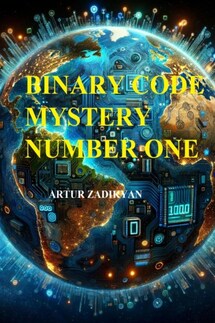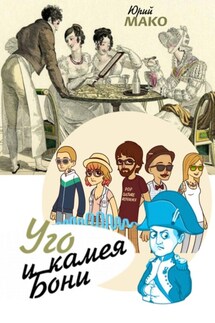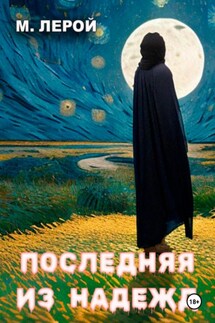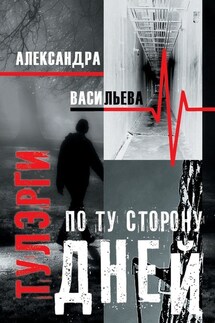Binary code Mystery number three - страница 14
Rutru was torn from his musings by Hent's call:
– Rutra Tigrovic, good afternoon, I realize you are in a bad mood, but I must remind you that professionals play by the rules, and you should know the rules.
"Without a magnifying glass I can see you're kents," Rutra thought of Henta and Jarovitovic.
The fact that Hent spoke ambiguously and in riddles did not surprise Ruthra; he was accustomed to it, and was well versed in "words that were not spoken". What did surprise and alarm him was that he addressed him so formally.
– Good afternoon. I'm listening.
– We need to get together. A big gathering of all the friends. The uniform is the same; shorts, slippers, Komsomol badge. The meeting place can't be changed. Gathering tonight, wear a hood, it might be windy or raining.
Ruthra guessed he was talking about the meeting at the board.
– Roger that. Anything to bring? A snack, maybe?
– It's all there, but you need something that's a little something, something about the eternal. I'm nostalgic for Indian movies, so if you've got something, take it.
– You know I can't refuse you, you're like a father to me.
– I'll be in touch.
– I'll be in touch.
Rutra was already in "thought," and after this he was lost in thought. Why so soon, why he did not call him, why he called and spoke "in ciphers" in an extremely encrypted network. Although it was all a game and a friendly performance. The meeting of the board was agreed in advance and carefully organized, with many distractions, up to the meeting of high-ranking officials, sometimes even presidents. Topics and reports were prepared from the collected materials by special organizations in the best centers. But still – something very serious was being planned.
In the evening, Rutra sat on the board. Yarovitovich was the moderator, as always. Those present sat in semi-darkness, wearing hoods.
– Happy future, colleagues," Yarovitovich began with a greeting. – Today's board should approve the final version of our action plan. Let's listen to the variants of a possible scenario and make decisions. I understand perfectly well that each of you has already discussed it many times, researched it, and with the involvement of well-known world institutions, but it is necessary for all of us to listen together at the board in order to make a joint decision. So, let's begin. Gentlemen, I ask you to listen to an approximate version of the consequences for the population in the event of a radical change in our plan, namely, if we have to shoot down missiles over Russia. You have the floor, my colleague.
A light built into the table lit up in front of the speaker, a man with a beard, wearing a pyramid-shaped hood, began his report.
– Gentlemen, colleagues, like-minded people, let me remind you that the Doomsday Clock shows half a minute to midnight. The position of the hands on its symbolic dial is determined by the editorial board of the Bulletin of the Atomic Scientists at the University of Chicago, which once included the creators of the first atomic bomb. Half a minute to midnight is an alarming number. There are several reasons for the current switch. The Bulletin of the Atomic Scientists board of directors justified its decision by the fact that the nuclear powers are modernizing and expanding their arsenal of nuclear weapons. Does this mean that nuclear war is really close at hand? If two years ago one could almost unequivocally say "no" to this question, now confidence in the unreality of such a scenario has significantly weakened. So: if there is a war tomorrow. Let's imagine that the irreparable has happened: nuclear war has started and American warheads are about to successfully reach their target. In this case, first of all, all forces will be thrown to ensure the safety of the country's leadership. After ensuring the safety of the country's leadership, qualified personnel, without whom the economy cannot function, will be evacuated. Alas, in the event of a sudden nuclear strike, the civilian population will have a hard time – the fortified bunkers will accommodate only a few people. The main measure to save the civilian population is its emergency evacuation 300 kilometers away from the epicenter of the explosion. In general, in the event of a sudden attack in urban areas, only people in fortified shelters, i.e. qualified personnel and management representatives, will be saved. If we talk about large cities, the only hope for the ordinary population remains the subway, but not all of them, but only deep subway stations.









